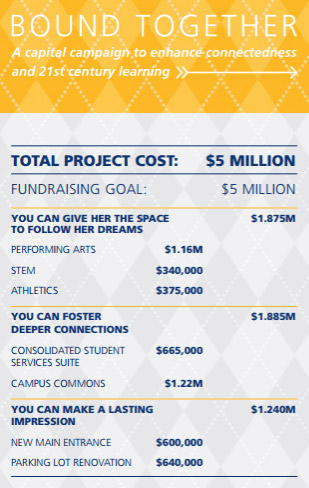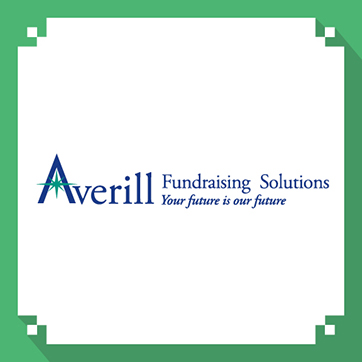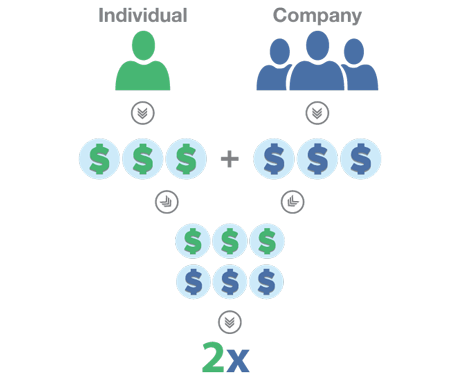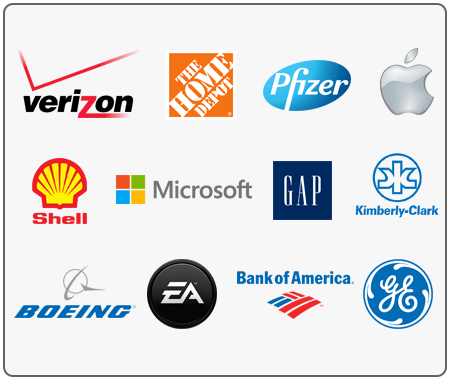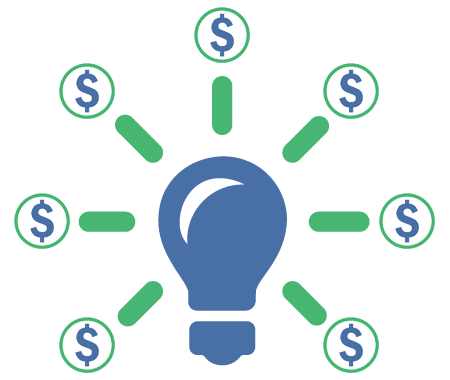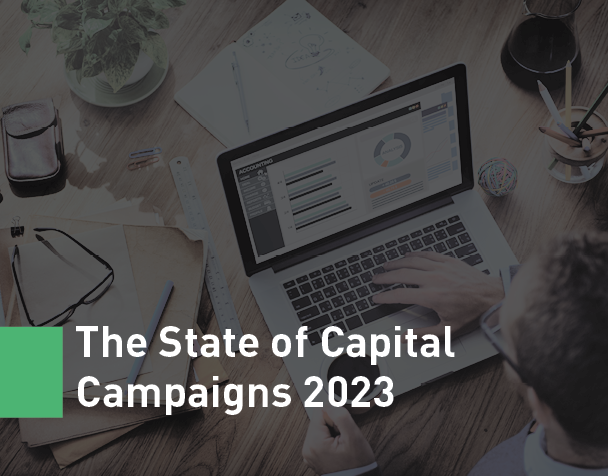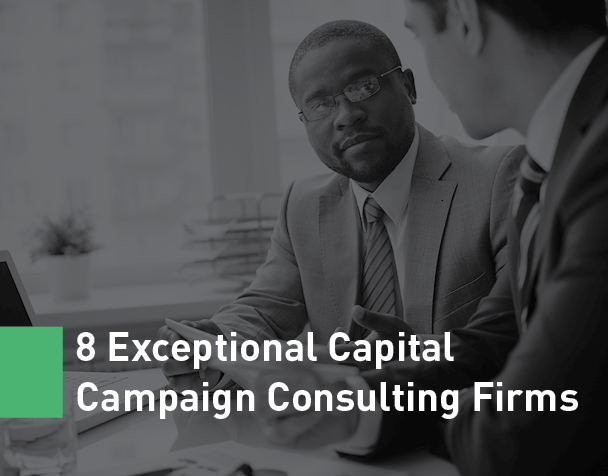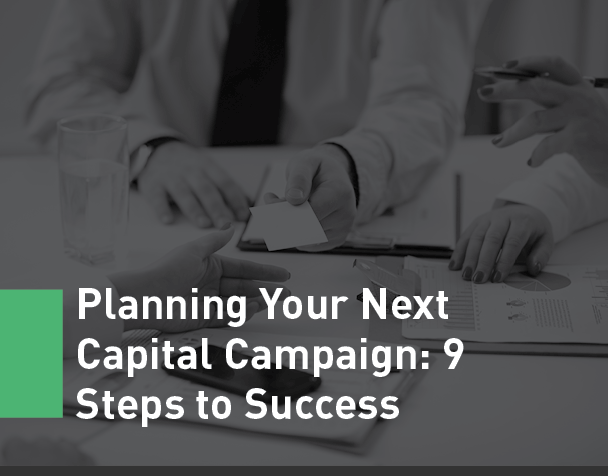Capital Campaigns: A Groundbreaking Guide to Success
Capital Campaigns: The Basics
What is a Capital Campaign?
At its core, a capital campaign is a drawn-out, extensive fundraiser.
But at a more complex level, a capital campaign is a concerted effort to raise a substantial amount of money for a specific project or undertaking.
According to Capital Campaign Pro, these campaigns typically take 2-3 years from start to finish, and most organizations conduct them every 10-15 years.
Because these are the largest fundraising campaigns your nonprofit will ever take on, capital campaigns require coordination and cooperation from your entire organization and community. Without the support of board members, staff, and individuals who are dedicated to your cause, a capital campaign has little to no chance of succeeding.
Why Do Nonprofits Use Capital Campaigns?
As stated before, nonprofits generally use capital campaigns for large projects that require substantial financial backing.
More often than not, capital campaigns are used to raise money for a new building or renovations to an existing building. But they can also be for:
Purchasing Lands or Buildings
The main reason that many organizations wish to acquire land is because it allows for the possibility of future expansion. Capital campaigns are thus used to help organizations raise enough money to finance a purchase of land. Organizations may also campaign to buy a building that they’ve rented for a long time when the space goes up for sale in order to secure a safe future without rent increases.
Expanding an Existing Building
Large organizations such as hospitals and schools often need to regularly expand their buildings in response to a growing population of patients or students. Such projects are massive undertakings and require a great deal of financial resources — which is why they are mostly accomplished via capital campaigns.
Funding New Programs or Increasing Staffing
Sometimes, in order to get a new program or initiative off the ground, your nonprofit needs an influx of funds to secure the necessary resources. You may even need the funding to grow your team to ensure that your organization has the capacity to do more for its beneficiaries.
Building an Endowment
An endowment helps to secure a bright future for your nonprofit, but it can be difficult to encourage giving to a capital campaign that focuses solely on an endowment since the impact of that giving may not be immediate. This is why many organizations choose to include endowment funding as one element of a multi-faceted capital campaign goal.
Purchasing Equipment or Supplies
Nonprofits sometimes require large-scale purchases to help further their mission. A hospital, for example, may need to upgrade existing radiology equipment, or a university may require a high-powered telescope for the astronomy department. Capital campaigns can help fund these major purchases.
What Types of Organizations Run Capital Campaigns?
Any type of organization can run a capital campaign! Let’s highlight a few examples:
Hospitals
Many hospitals or healthcare nonprofits choose to launch capital campaigns to raise money to construct new wings or buildings, purchase new equipment, replace or repair outdated machines, or fund groundbreaking medical research.
Schools and Universities
Schools, colleges, and universities are the other type of organization that frequently uses capital campaigns as a fundraising method. Education-related organizations use capital campaigns to raise money for new buildings, scholarship funds, or new equipment.
Other Nonprofits That Can Use Capital Campaigns to Fundraise:
How Can You Market Your Capital Campaign?
A well-marketed capital campaign has the power to launch big projects forward for your mission. Before entering the public phase of your campaign, make sure you have a thought-out marketing plan.
Here are some core considerations as you brainstorm marketing strategies with your team.
Google Ads
Paid advertising is a wonderful way to get your capital campaign content in front of prospects. Using the Google Grants program, you can receive up to $10,000 to spend on Google Ads for free. With careful keyword research, you can amplify your campaign’s landing page on Google Search and drive more traffic to it.
We recommend working with a Google Grants consultant to create inspiring ads that target the right users on Google.
Get a free consultation with our recommended Google Ads Agency, Getting Attention!
Brochure
A brochure gives you plenty of space to cover the key details of your capital campaign.
The most compelling brochures feature what your project will accomplish and who it’ll benefit – whether that’s building a shelter for the homeless, an animal sanctuary for endangered species, or something else. Paint a picture with words and images about how your work will create a difference. Then, provide details for getting involved, like visiting your campaign page’s URL.
Email has the highest ROI of any marketing channel, so include it in your outreach!
When you move into the public phase of your campaign, send regular emails announcing your campaign. Then, provide updates along the way. You have seconds to get your point across, so keep your emails short and include a clear call to action in each one, giving the reader their exact next step. Then, top it all off with a subject line that encourages recipients to open the email.
Who Can Help You Conduct a Capital Campaign?
Capital campaigns are significant undertakings, so nonprofits usually turn to professional fundraising consultants to help plan and execute them. A consultant or advisor can help with campaign planning, feasibility studies, prospect research, fundraising and solicitation, event planning, and more.
Our Recommended Provider
The Process of a Capital Campaign
Planning a Capital Campaign
Your nonprofit needs to carefully plan out your capital campaign before you begin fundraising in order to ensure that the implementation process goes as smoothly as possible. Without a thorough plan in place, your team may not successfully anticipate issues before they arise and may realize too late that your fundraising strategy needs revision.
Some tasks that should be completed in the planning phase include:
Determine Objectives & Working Financial Goal
The objectives of your campaign are the reasons you’re conducting your campaign. For instance, you may want to purchase new supplies and equipment or renovate your facility. Your financial goal will depend on the scope and size of the project your organization is undertaking. You should arrive at this number after careful calculation and accounting for hidden costs. With your objectives and working financial goal in mind, you can create a draft of your case for support to use in your feasibility study (more on this later).
Conduct a Feasibility Study or Report
We’ll go over the details of a feasibility report in a later section, but it’s vital to the success of your capital campaign. A feasibility report is essentially “product-testing” your campaign. You want to make sure that the community will be willing to support your project, and a feasibility report helps you do just that.
Create a Gift Range Chart
Once you’ve tested the feasibility of your campaign and have a more solid financial goal, create a gift range chart. This is a visualization of how many gifts your nonprofit needs to secure at certain levels. You can take this a step further by developing a depth chart, which attaches specific prospect and donor names to each gift.
Set Up Your Team
We’ll go over the details of a feasibility report in a later section, but it’s vital to the success of your capital campaign. A feasibility report is essentially “product-testing” your campaign. You want to make sure that the community will be willing to support your project, and a feasibility report helps you do just that.
Plan Out Your Communications and Marketing Strategy
Determine how you’ll get the word out about your campaign during both the quiet and the public phases. Review the strategies listed above, like using Google Ad Grants or creating a brochure, while also considering what you know about your community and the communications they’ve responded to in the past.
Develop the Budget
Capital campaigns are used to raise money for large projects, but they also cost money to prepare and launch. You’ll need to account for marketing materials, costs for events, and other fundraising expenses that may occur.
Set a Deadline
Your deadline will largely depend on your financial target and the pool of donors you expect to donate. You don’t want to make your deadline too soon and risk not raising your goal. On the other hand, you don’t want to set a deadline that’s five years from now when it would only take two years to raise the money.
Implementing a Capital Campaign
After all of the hard work in the planning phase, it’s time to implement your capital campaign!
There are two main segments within the implementation process:
The Quiet Phase
The quiet phase is not made open to the public but instead relies on contributions from your major donors. During this stage, your committee members will reach out to your major donors and local businesses to solicit large donations. Usually, capital campaigns raise 50-70% of their total during the quiet phase.
The Public Phase
The public phase begins with a kickoff event, sometimes at the building site (when applicable). Once the public phase begins, donors are able to give however much they want. Your committee can still solicit major gifts, but the focus should be on broad marketing to as many donors as possible.
Once you reach your goal in the public phase, it’s time to celebrate! However, don’t neglect important donor stewardship tasks, like thanking your donors and continuing communications with them. Capitalize on the relationships you strengthened during your campaign in order to secure future engagement and support.
Essentials for a Successful Capital Campaign
Feasibility Study
Feasibility studies are crucial to the success of any capital campaign. They essentially determine whether or not your donors and the community will be willing to support your organization’s project.
Think of your feasibility study as a critical must-have instead of an optional step. It will help you get a leg up on your campaign from the get-go. In fact, Capital Campaign Pro found that organizations that conducted a feasibility study raised, on average, 115% of their original campaign goal versus 101% for organizations that did not conduct a study.
During a feasibility study, your organization’s leaders or an outside consultant will sit down and interview 30 to 40 individuals from the community. The experts at Capital Campaign Pro recommend taking a hands-on, guided approach in which your nonprofit’s leaders conduct the interviews personally with the support of a campaign advisor. You’ll then work together to distill insights and recommendations.
Questions to ask your interviewees during a feasibility study will range from personal (“What is your connection to the organization?”) to more broad (“Do you think this organization can raise the money for this project?”).
By the end of the feasibility study, your organization should be able to determine whether or not you have the support needed to raise money for your capital campaign.
What questions should you ask during a feasibility study?
Who Should You Interview for a Feasibility Study?
Capital Campaign Committee
Before you begin planning your capital campaign, you’ll first want to gather a committee of dedicated individuals around you to help with its planning and execution.
Don’t feel obligated to create a massive capital campaign committee that includes every board member, staff member, and major donor in your organization’s history. The committee should be big enough to handle the particulars of the capital campaign but small enough to give everyone an opportunity to voice their opinion.
People you should consider for your capital campaign committee include:
- Board Members
- Staff Members
- Major Gift Donors
- Volunteer Leaders
- Community Leaders
Prospect Research
Prospect research is a valuable tool that you can leverage to more deeply understand your donor base.
Prospect research can help you learn more about your donors’:
- Past giving history to your organization
- Previous donations to other nonprofits and political campaigns
- Business connections
- Employment information
- Basic data like name, email address, and phone number
Having this information will help guide you toward your major donors. Because major gifts are going to drive the first half to two-thirds of your capital campaign, you’ll need to be well prepared to make those donation appeals.
With prospect research on your side, you’ll be more than ready to solicit those major donations from your supporters.
A Case for Support
A case for support is a document outlining your nonprofit’s justification for hosting your capital campaign. It is useful for both your feasibility study and the quiet and public phases of the campaign.
For that reason, your case for support must be airtight and convincing! Convey a sense of urgency as concisely and clearly as possible. After all, donors want to know why you need their support and how they can help.
Your case for support should include:
- Your nonprofit’s background
- Your cause and services
- Your future goals
- The reason for the capital campaign
- An explanation of the capital campaign
A great case for support will be branded to your organization. Just take a look at this example from St. Ursula’s Academy, by Aly Sterling Philanthropy. As you can see from this example and Aly Sterling’s Capital Campaign guide, nonprofits can creatively showcase their financial goals and capture the spirit of their cause at the same time!
Specifically, the branded colors, the heartfelt text, and the easy-to-understand fundraising goals make this case for support tangible!
Capital Campaign Consultants
How to Hire a Capital Campaign Consultant
Capital campaign consultants bring valuable expertise and a refreshing, outside perspective that can help you plan and execute your capital campaign. However, the process of hiring a consultant can be rather involved.
After all, you’re building a partnership and a long-lasting relationship with someone who can understand your mission, meet your needs, and get along well with your existing staff.
Here are some tips for making sure you get the right fit:
Top Capital Campaign Consultants
For nonprofit leaders interested in taking a more hands-on approach to planning and running their campaigns, there are other capital campaign support options available.
Capital Campaign Pro combines online campaign resources with expert advising for budget-friendly support that gives you the best of both worlds. By playing an active, direct role in your capital campaign, your team will learn invaluable skills related to campaign planning, donor stewardship, major gift solicitation, and more.
With Capital Campaign Pro, nonprofits are guided through an organized capital campaign plan. The step-by-step plan, resources and templates, and coaching calls all guide you to campaign success. Further, you’re able to have one-on-one advising with one of their expert capital campaign advisors for additional support!
With a traditional fundraising consultant, your nonprofit will instead have an expert steering one or more parts of the campaign. Depending on your needs and organization’s preferences, this may be a good choice.
Your nonprofit’s fundraising consultant can work with you in the initial stages to plan your capital campaign by conducting a feasibility study, helping you draft your case statement, and developing collateral related to the capital campaign.
However, your fundraising consultant can also help your nonprofit with big-picture fundraising needs, both related to the capital campaign and to your other fundraising projects.
Some common services consultants provide include:
- Campaign direction
- Strategic planning
- Executive search
- Embedded staffing
- Board governance
- Internal development
Expert consultants like Aly Sterling Philanthropy and Averill Fundraising Solutions offer traditional fundraising services that can help your capital campaign hit the ground running and set your nonprofit up for success for years to come.
Unique Capital Campaign Ideas
Capital Campaigns and Fundraising Events
Fundraising events can be a great opportunity for your nonprofit to directly interact with your donors and form deeper connections with them.
But by their very nature, fundraising events are meant to help your organization raise more money.
Because capital campaigns often run for months and even years, there is plenty of time for your nonprofit to host fun events that bring in more donations.
Obviously, the one event you’ll already have to plan is the kickoff event between the Quiet Phase and the Public Phase.
But you can host all sorts of fundraisers that will bring your community together to raise money for your campaign!
Click below to check out some amazing event fundraising ideas!
Capital Campaigns and Matching Gifts
Matching gifts have the potential to speed up your capital campaign two fold.
These corporate giving programs reward employee giving to nonprofits by doubling or sometimes even tripling employees’ donations to eligible organizations.
Not every donor will work for a company that matches donations, and even if they do, every company has different guidelines and restrictions that must be followed before the matching funds are released.
But, your organization should still promote matching gifts to all of your capital campaign donors anyway!
Why? Well, since 50-70% of your capital campaign funds will come from major gifts, those donations mean even more when they are doubled.
It can’t hurt to remind your donors of matching gift programs!
Asking for Corporate Donations
Companies big and small are often willing to support nonprofit projects like capital campaigns.
Not only does it allow them to be more philanthropic, but they receive tax benefits and form meaningful partnerships with organizations.
Therefore, it’s a smart move for some members of your capital campaign committee to ask businesses for cash and in kind donations for your capital campaign.
Some companies will respond favorably and donate generously while others will have guidelines about the types of nonprofits and projects they donate to.
The best route to take is to research which companies offer grant programs and regularly donate to nonprofit organizations.
Give your capital campaign fundraising efforts a boost by asking for donations from companies!
Capital Campaigns and Challenge Grants
A capital campaign committee may elect to apply for a challenge grant to take their fundraising efforts to the next level.
Challenge grants are funds that are released by a grant-making entity after a nonprofit has completed a challenge.
Normally, these challenges are fiscally based, meaning that they are perfect additions to capital campaigns.
A challenge grant will sometimes match the challenge amount anywhere from .5:1 all the way up to 2:1.
This means that your nonprofit could stand to triple the funds that you raise during your capital campaign with the help of a challenge grant.
Do some research to find out if there are any challenge grants available in your local area to help your capital campaign reach its maximum potential!
Additional Resources
Capital Campaign Timeline
Traditionally, nonprofits have had to rely on word-of-mouth advice and anecdotal evidence to understand how campaigns work and what their chances of success were. Now, thanks to Capital Campaign Pro, we have a research study to help us better understand the state of capital campaigns.
Top Consultants
Sometimes, nonprofits need help from an outside source during their capital campaigns. That’s where capital campaign consultants come in! We’ve found the best consultants and consultant firms out there.
Capital Campaigns Planning Steps
Need some help when it comes to planning your capital campaigns? We’ve got you covered! Check out this great resource about everything there is to know about planning capital campaigns from Aly Sterling Philanthropy!



















